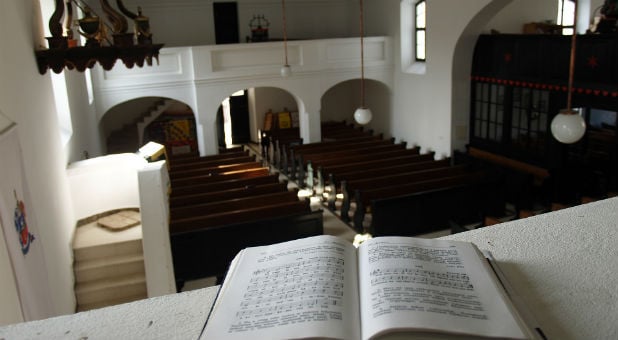In Ghana, where over 90% of the population identifies as religious, one would expect that truth, justice, and compassion would shape public life. Sadly, that is not the case. Corruption flourishes, injustice thrives, and while the people suffer, the pulpits are often silent.
When thieves in suits plunder the nation, many religious leaders look away. Some even offer front-row seats to corrupt politicians, giving them titles like “Patron,” “Elder,” or “Chief Mourner”, not because of piety, but because of power and donations. This must change!
A Sacred Duty Betrayed
In all religious traditions, spiritual leaders are called to speak truth, no matter how uncomfortable. Their duty is to be the moral compass of society, not entertainers, not fundraisers, not political praise-singers. The Bible (Proverbs 31:8-9) instructs, “Speak up for those who cannot speak for themselves, for the rights of all who are destitute… defend the rights of the poor and needy”. The Qur’an (Surah Al-A’raf 7:164) says, “When a group among them said, ‘Why do you preach to a people whom Allah will destroy?’ They replied, ‘To be free from guilt before your Lord, and perhaps they may fear Him’”. The Buddha taught that “Silence in the face of injustice is the voice of complicity”. Religious leaders must not forget that silence is not neutrality, it is betrayal!
The Temptation of Power and Comfort
Many religious leaders today fear losing donations or political favor. They exchange prophetic courage for popularity. Politicians become their financiers, not their subjects of rebuke. Temples, mosques, and churches are built with questionable money, and no one dares to ask where it came from. But this is not new. In Ancient Israel, prophets like Amos and Jeremiah were hated because they condemned rulers who oppressed the poor. As Amos 5:24 boldly declared, “But let justice roll on like a river, righteousness like a never-failing stream!” That should be the cry of every true Imam, Pastor, Monk, or Priest.
The Power of the Pulpit
A Friday sermon. A Sunday homily. A spiritual retreat. These are not just religious events. They are powerful moments that can shape minds, mobilize communities, and awaken nations. Imagine if Imams used their khutbahs to denounce bribery in government, Priests preached against nepotism, tribalism, and misuse of power, and Fetish Priests demanded fair contracts, quality healthcare, and justice for victims. Ghana would change!
What about the Citizens?
Religious leaders cannot do it alone. Citizens must rise. Democracy is not just about voting every four years. It’s about constant engagement, pressure, protest, and participation. Citizens must attend town hall meetings and demand answers; refuse to take bribes or offer them; report corruption, not justify it because of party loyalty; challenge leaders in the media, not just gossip in taxis and drinking bars; and support journalists and whistleblowers, not mock them for speaking up. As Thomas Jefferson said, “The price of freedom is eternal vigilance”. And as an African proverb goes, “The child who is not embraced by the village will burn it down to feel its warmth”. The youth will not wait forever. If systems fail them, they will rebel — socially, spiritually, and politically.
No More Business as Usual
Let us remember that every corrupt official was once an ordinary citizen. If we do not teach moral courage now, we are preparing the next generation of looters. Both pulpit and public must work hand-in-hand. Let the Imams and Pastors be fearless; let citizens be wise and watchful; and let public servants remember at all times that their title is “servant”, not “boss”.
A Glimmer of Hope
A few religious leaders have risen above partisan loyalty to speak boldly on issues of national concern. The Catholic Bishops’ Conference has consistently issued pastoral letters condemning corruption and calling for justice for the poor, while the Christian Council of Ghana has urged political leaders to prioritize national interest over party loyalty. The revered National Chief Imam, Sheikh Dr. Osmanu Nuhu Sharubutu, has remained a symbol of peace and moral restraint, using his influence to promote tolerance and equity. His spokesperson, Sheikh Aremeyaw Shaibu, has regularly challenged both religious and political actors to uphold integrity and refrain from exploiting faith for partisan gain. Similarly, figures like Archbishop Charles Palmer-Buckle and Rev. Eastwood Anaba have, at various times, spoken truth to power, reminding leaders that governance is a sacred trust. Yet, the silence or complicity of many other religious voices continues to embolden the culture of impunity. If more faith leaders embraced their prophetic role, the Ghanaian conscience could be steered toward collective accountability.
A Call to Righteous Resistance
There is a rising wind in Ghana and across Africa. A yearning for justice, accountability, and leadership with conscience. Religious leaders and citizens must be at the forefront of this moral revival. To every preacher, Imam, elder, fetish priest, monk, or so-called ‘man of God’ speak now or history will judge you harshly. To every citizen, the nation belongs to you, not a political party, not the president, not the Member of Parliament. Hold them accountable! As the Bhagavad Gita (Chapter 3:19) teaches, “One should perform their duty without attachment, for by doing so, one attains the Supreme”. Let us all do our duty, to God, to country, and to conscience.
FUSEINI ABDULAI BRAIMAH
+233550558008 / +233208282575
[email protected]


